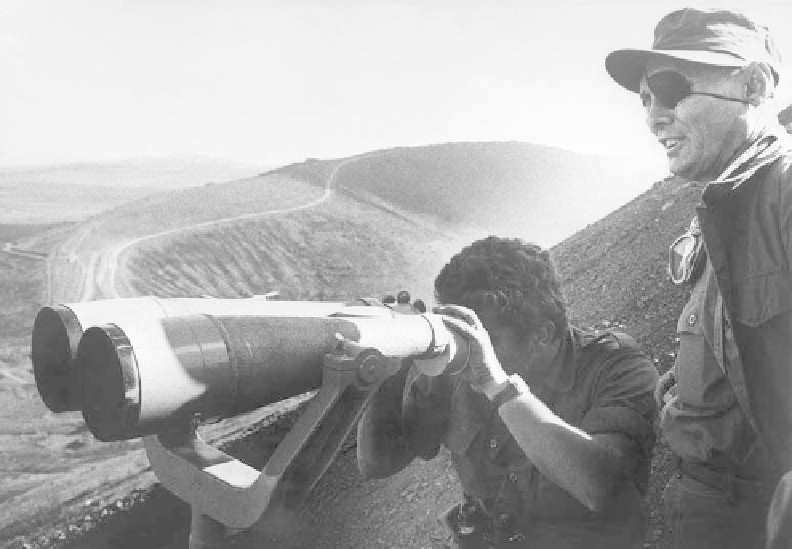Travel Reference
In-Depth Information
Defense Minister Moshe Dayan (with eyepatch) on the Golan Heights during the Yom Kippur War, October
1973. (Getty Images / Image Bank.)
During this period, Israel's lack of international support caused concern in the country. The
United States was slow to respond with shipments of military equipment when the war began,
and Israelis widely believed that the delay was purposeful, that the United States had assumed
that an outcome closer to a tie would make peace negotiations more fruitful. When the U.S.
government asked European countries to let their runways be used for the military airlift to
Israel, they all refused except for Portugal, which responded to U.S. pressure. During the war,
an Arab oil embargo aimed at the United States and the Netherlands for their support of Israel
also ushered in an era of high oil prices, giving Arab states a new weapon for intimidation and
economic infl uence.
Although the war lasted barely three weeks, Israel paid heavily: nearly 3,000 were dead or
missing. The national mood was far more sober and self-critical than after the 1967 war. The
government was widely disparaged for lack of preparation, which set the stage for dramatic
internal political changes.
POLITICAL AND SOCIAL TRANSFORMATION
The 1977 election was a turning point in Israel's history, the biggest political change in three
decades of independence. A radio announcer called it an “earthquake” when the results were
broadcast, and that label stuck. For the fi rst time, not only did the Labor Party lose power, but
the loss was by a wide margin. There were several reasons for this outcome, including dissat-

